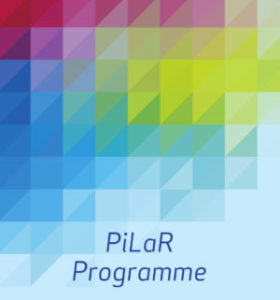Background
Anorexia nervosa (AN) is a disabling disorder presenting with several psychiatric and physical comorbidities. Incidence rates vary from 4.2–12.6 per 100,000 person-years for females to 1 per 100,000 person-years for males. AN often develops in a chronic course and with the highest mortality rate among all psychiatric conditions.
No pharmacological treatments are approved for AN, leaving talking therapies as the only option. These have limited efficacy, with relapse rates as high as 52%4 and poor long-term outcome. The alternative has been off-label prescription of pharmacological treatments, which are not evidence based and have limited safety data. The lack of effective treatment options for people with AN highlights a critical unmet clinical need.
There are several lines of evidence that converge to offer a compelling rationale for the assessment of COMP360 psilocybin therapy in AN.
Aims
Primary Objective
• To assess the efficacy of COMP360 with psychological support in improving AN symptoms.
Secondary Objectives
• To assess the effects of COMP360 on associated obsessive compulsive symptoms typical of AN
• To assess effects of COMP360 on weight gain in participants with AN. Safety Objective
• To assess the safety and tolerability of COMP360 delivered under supportive conditions.
Exploratory Objectives
· To assess the effects of COMP360 psilocybin therapy on changes in quality of life, psychosocial impairment, anxiety, and depressive symptoms.
· To assess the overall severity of AN symptoms and improvement according to clinical judgment.
· To assess readiness and motivation to change and eating disorder-related preoccupations and rituals.
Recruitment and Screening
- A referral letter will be required from potential participants’ GP or Psychiatrist.
- Participants will undergo a pre-screening phon ecall, followed by a screening visit, where they are invited to sign the Informed Consent Form (ICF).
- It is a requirement of the study that participants have a nominated person for the study team to keep in contact with, and to accompany the participant home on dosing day, such as a friend, partner, or family member.
- Prior experience of psilocybin will be permitted for up to 10% of total participants, provided that they did not use psilocybin within the 12 months prior to screening, or in an investigational study exploring the therapeutic potential of psilocybin.
- After signing the informed consent form (ICF), participants will be assessed for their eligibility with several mental health questionnaires, body mass index (BMI; using weight and height data) measurement, clinical lab tests, physical examination, and vital signs. Demographic information will be collected as well as details on the participant’s previous treatments for AN and their medical history.
- Participants who pass initial screening will need to be tapered off any antidepressant or other psychiatric medications, and will be expected to be off all of these medications for at least 2 weeks prior to baseline. The designated study team member at the site will be in frequent contact with the participants via weekly in clinic visits and phone calls upon necessity to monitor for withdrawal (if applicable) and worsening of symptoms.
All participants will be evaluated for safety at the clinic weekly for a minimum of three weeks prior to baseline to ensure safe discontinuation of current antidepressant and/or antipsychotic therapy required by the protocol.
Preparation and Dosing
- Participants will be invited to attend preparation sessions with a therapist
- There will be a baseline visit one day prior to a dosing day with COMP360. This will include weight measurement, completion of mental health questionnaires, blood tests, urine pregnancy test (as required), urine toxicology
- On dosing day, participants will be randomised in a 2:1 ratio to receive either COMP360 25 mg or 1 mg, administered under supportive conditions with a therapist present. The session will last approximately 6-8 hours. The main goals of the psychological support during the administration session are to ensure psychological and physical safety, maintain the participant’s attention and awareness on the experience in the present moment, and to allow the participant’s subjective experience to unfold naturally. Throughout the COMP360 administration session, participants’ blood pressure and pulse rate will also be monitored for safety.
- After the acute effects of COMP360 have worn off, participants will be asked to fill out some self-rated and clinician-rated questionnaires.
- Participants will be accompanied home on the dosing day by their nominated person.
- On the following day, participants will be seen in person for a safety check, assessment of suicidality, and to discuss their experience during the dosing session (this will be the first integration session).
- All sessions between the therapists and the participant may be audio recorded, subject to participant consent. Participants who do not consent to either or all recordings will not be excluded from the study.
- Initiation or re initiation of new or prior treatments for symptoms of AN is prohibited for at least four weeks after the COMP360 administration session.
Format
Phase IIb Clinical Trial
Confidentiality
Identification of participants and eCRFs shall be by initials, screening and treatment numbers only. If required, the participant’s full name may be made known to an authorised regulatory agency or other authorised official.
Ethics
This trial and research has received ethics approval from the National Office for Research Ethics Committees (NREC).
Contact information for the researcher and supervisor
Email for recruitment and correspondence: anresearch@crp.healthcare
Sub-Investigator: Dr Kathryn Ledden, MCRN 432451, contactable at k.ledden@crp.healthcare
Primary Investigator: Dr John Kelly



